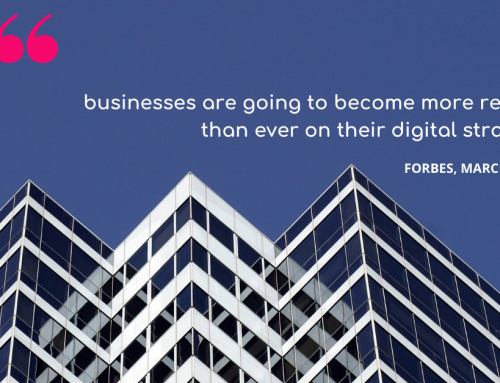As we near week 10 of lockdown, businesses without an online presence, or those that have always relied heavily on in-person sales, are scrambling to get a toehold in the online space.
South African retailers, especially fashion/clothing retailers are really lagging behind in this space (not you MRP). These retailers are a prime example of relying heavily on physical retail space, and not spending enough time getting an online shop user-friendly. We would categorise the online presence of most South African retailers as lacklustre at best. COVID-19 and lockdown is forcing South African businesses to really focus on e-commerce. Better late than never, we say.
COVID-19 will permanently reshape e-commerce as we know it, separating winners from the rest. Companies that invest quickly and courageously in pivoting their businesses toward the new norm can capture market share and emerge as market leaders post-pandemic.
Having an online shop is only the first step. Sophisticated and effective digital marketing is the biggest challenge. See the first 8 points that everyone must know now. Recruiting the skills needed to establish an e-commerce platform for your business is not the difficult part. The biggest challenge businesses face is the continual daily or weekly digital marketing output to customers, but this is undoubtedly where the magic happens. You clients need to be enticed to enter your online store, and all of this refined, persuasive story-telling happens on social media platforms and other digital channels.
Intensified online competition: E-commerce players seeing a surge in volume will do everything in their power to retain their newly acquired customers through loyalty programs, subscription models, promotions, and expansion of the product range. The competition intensifies with consumers using price engines and referral sites to find the best deals online. Deloitte – COVID-19 will permanently change e-commerce
Your tech media analyst, your digital agency and your marketing team are your most important resources in the shift from offline to online in this time of acceleration.
In the South African market, retailers without an online presence or an e-commerce strategy that just isn’t good enough, will not make it.
David Smith, a retail analyst for Investec for Corporates & Intermediaries, says that the crisis has significantly sped up the shift towards online retail and that the winners in the future will need to adapt quickly to a more digitally savvy and price-sensitive consumer.
The South African e-commerce winners:
- Checkers 60/60
- Yuppiechef
- MRP
- Takealot
7 Things you need to know now
1. Creating an online shop sounds easy
The user-friendliness of your online shop is essential. As you are dealing with a virtual storefront, the value of the product needs to be demonstrated clearly. For example, fashion items need to be shown on a body, and not just as product shots. There are many psychological factors that need to be considered in the making of a successful e-commerce platform.
2. Having an online shop is not enough
It needs to work hard and contribute to the bottom-line, and getting there takes total dedication and focus.
3. It takes time
Getting your online shop to profitability takes time, effort and expertise. Pick your partners wisely.
4. Be prepared to change direction continuously
Listen to your customer. Figure out what consumers gravitate towards, and change track to meet these desires. This leads the way to profitable online business.
5. Simplicity
It is not done until it is simple and effective.
6. Without brilliant marketing, you’re just taking up (online) space
Effective digital marketing and a robust social media presence are the tools that lead to profitability. In order to entice customers to buy, many factors need to be considered. One important aspect is online search. SEO is a basic requirement for success in the crowded online space, and requires a skilled SEO specialist to get right.
7. Elevate e-commerce to the executive agenda
Budgets are getting enormous attention at the moment, but do not cut back on efforts to enhance IT, and particularly the digital, internet-based marketing of you service and products. This area needs more consideration now than ever, and should be a priority to ensure your business is successful in the new, post COVID-19 world.







